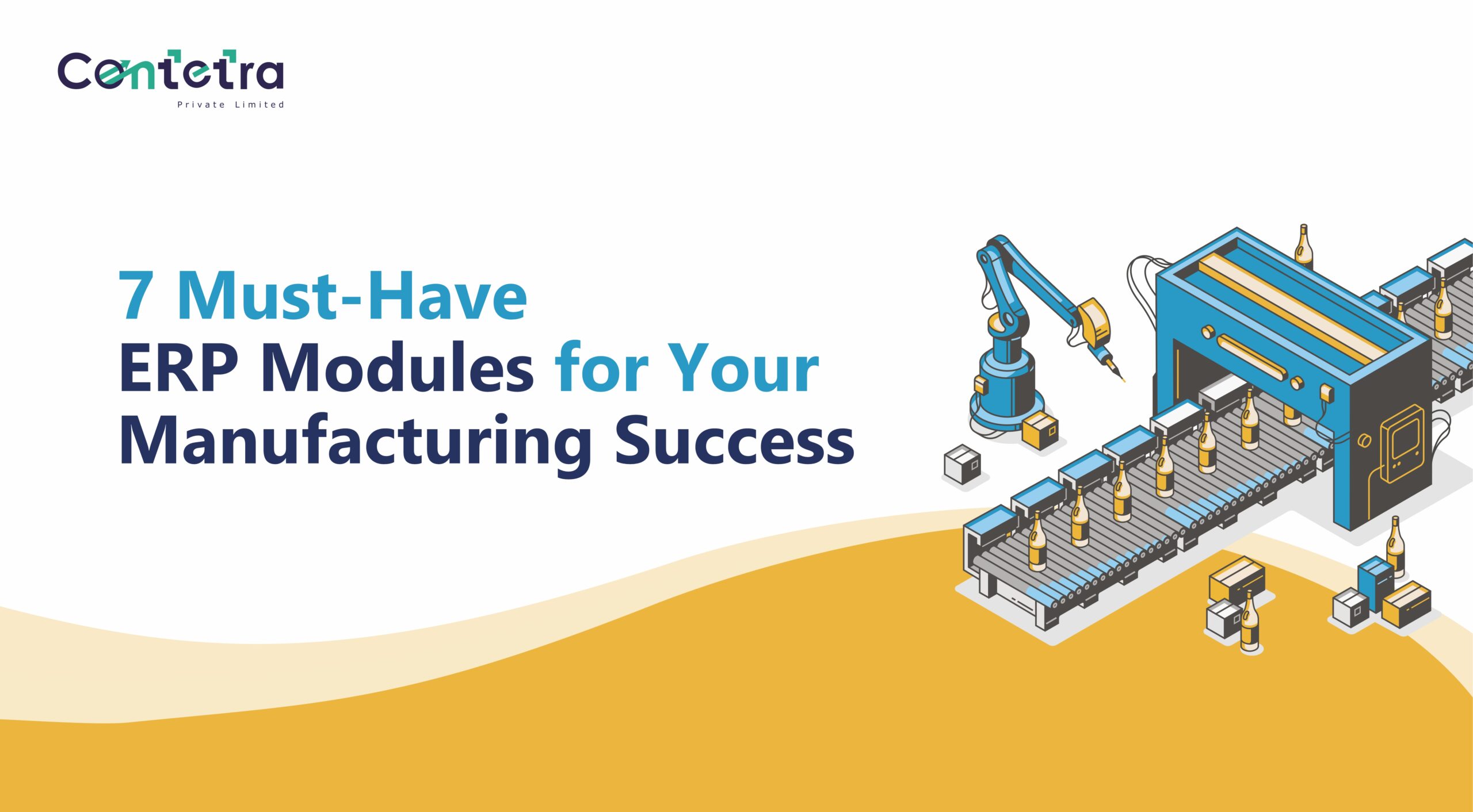Do you know India has the potential to become a global manufacturing hub and add more than US$ 500 billion annually to the global economy? The Indian manufacturing industry is one of the fastest-growing industries in India. Whether it is automotive, engineering, chemicals, pharmaceuticals, or consumer durables, every manufacturing industry is growing close to 6% every year.
But today, there is high competition in most marketplaces. So, it’s crucial for businesses to enhance their operations to remain successful continuously. Companies across various sectors leverage their ERP for manufacturing industry to streamline their production processes.
Let me explain with an example. We all know that Coca-Cola outsources its manufacturing across its 900 bottling plants. But![]() how do they produce the same soft drink without any change in the product or packaging? Well, the answer here is ERP!
how do they produce the same soft drink without any change in the product or packaging? Well, the answer here is ERP!
Coca-Cola in partnership with SAP and Oracle, has created a customised ERP solution integrated with blockchain to handle its operations across the world. This allows the brand to produce the same product at such a massive scale and never miss a single bottle going out of sight.
So, how is an ERP generating value for manufacturing entities?
The bottom-line answer to the above question of every manufacturer is as simple as you think: The Correct Insights!
Manufacturing companies need insights to do better in any market, such as which product is selling high, which product is costly, which department is outperforming others, and which plant has bottlenecks.
Every possible insight is required by a manufacturing company to be better than the last quarter. With the right ERP for the manufacturing industry, companies can tailor modules to effectively oversee and track inventory, workflow, workforce management, order management, asset management, and logistics. The desire for such a system directly stems from the need to meet specific company demands efficiently.
{Whether you’re the captain of the assembly line or the proud owner of a manufacturing empire, keep reading because we’ve got some insider scoop coming your way.}
What ERP modules should a manufacturing focus on?
We all know, every business is different – different products, different processes, different management styles and different budgets, but the ERP modules need not be different.
So, here are a few functions that an ERP for manufacturing industry should look for:
- Finance: The Foundation of Business Operations
The most important module for any business ERP is finance as the financial health is fundamental to every other operation within the company.
Key functions of this module – This module streamlines financial processes, managing accounting, budgeting, and financial reporting. It ensures real-time visibility into financial data, facilitates accurate tracking of costs and revenue, and supports compliance with regulatory requirements. This module enhances financial decision-making, enabling businesses to optimise resource allocation and maintain fiscal control throughout the manufacturing process.
Some key reports in this module include:
- Non-moving Accounts Report: Helps identifying redundant or obsolete accounts, ensuring financial resources are allocated efficiently.
- Cash Flow Statement for the Month: It aids in planning for capital investments and operational expenses in a tight margin industry.
- Creditors Outstanding Report: Ensures timely payments to maintain supply chain efficiency and prevent production delays.
Impact – Enhanced fiscal control and strategic financial decisions.
- Admin and Operations: The Heartbeat of ERP for Manufacturing Industry
Overseeing the manufacturing processes and operations is like the company’s pulse.
Key functions of this module – It involves creating consumer-friendly products that meet their needs.
The final product comes to life by assembling raw materials step by step, following a predetermined order, commonly referred to as a routing or bill of operations.
Some key reports in this module include
- Executive summary of all SO, PO, MRR and Invoices for the day: A quick snapshot of daily operations is vital for ensuring that manufacturing workflows are aligned with sales and procurement activities.
- Pending Sales Order Register: It’s crucial for meeting delivery commitments and enhancing customer satisfaction in a competitive market.
- Pending Purchase Order Register: Essential for tracking incoming materials and managing inventory levels.
- Snapshot Report of Collection and Payments: Provides insights into cash flow management, helping to ensure that operations are funded effectively.
Impact – Enhanced foundational impact on operational efficiency.
- Inventory Access and Control: Ensuring Material Balance
Every manufacturing company actively engages with inventories, whether they are process manufacturers or discrete manufacturers. Both types require effective inventory management systems as a part of their customised ERP solutions.
Key functions of this module – Implementing such systems allows a factory to avoid wasting material with no value by maintaining proper inventory control. This practice enables manufacturers to eliminate excess inventory while retaining some value. To ensure the inventory’s proper upkeep, it is essential to store supplies in locations easily accessible for transportation to and from the production area.
Some key reports in this module include
- Stock Levels Report: Essential for ensuring sufficient materials are available for production, helping to avoid stockouts or overstocking, which can impact production schedules and operational costs.
- Inventory Turnover Report: Vital for assessing the efficiency of inventory management, helping to optimize stock levels, reduce holding costs, and improve cash flow.
- Reorder Point Analysis: Crucial for maintaining optimal inventory levels, ensuring materials are always available for production without tying up too much capital in stock.
Impact – Enhancements in material balance and waste reduction.
- Purchase and Supply Chain Management: The Backbone of Production
The process of purchasing and selling goods serves as the driving force behind manufacturing operations.
Key functions of this module – A manager can monitor orders from initiation until they reach the receiving dock using a dedicated module. This module is crucial for customised ERP solutions in providing necessary notifications for follow-up activities, ensuring smooth handling of the order. Furthermore, it actively tracks and maintains a comprehensive record of all transactions.
Some key reports in this module include
- Pending Purchase Requisitions (Indents): Enables timely review and approval of necessary purchases to maintain production schedules and ensure no delays.
- Pending Purchase Order: Helps in anticipating potential delays and adjusting production planning accordingly.
- Purchase Schedule vs Actual Report: Aids in identifying areas for improvement in procurement processes.
- Purchase Estimate for ROL (Reorder level) / MSL (Minimum stock level) items: Ensures that materials are available when needed without overinvesting in inventory.
Impact – Improved supply chain efficiency and vendor relations.
- Sales and Order Processing: Fulfilling Demand Seamlessly
ERPs for manufacturing industry play a crucial role in keeping operations informed about scheduling work and procuring necessary materials to meet client demands efficiently.
Key functions of this module – These ERPs provide insights to sales management, notifying them about the order’s progress and empowering them to alert customers if there are any potential risks. The ERP software diligently records all essential transactions, linking them to the demand for sales orders.
Some key reports in this module include
- Sales Forecast Report: Essential for aligning production with market demand, minimizing overproduction or shortages.
- Order Fulfilment Report: Crucial for optimizing delivery performance and enhancing customer satisfaction.
- Sales Conversion Analysis: Vital for improving sales strategies and maximizing revenue potential
Impact – Better customer satisfaction and demand fulfilment.
- Customer Insights: Fulfilling Demand Seamlessly
Customer Relationship Management (CRM) is a vital component that equips businesses to observe and document each interaction between a manufacturer and a client.
Key functions of this module – These exchanges can occur verbally, whether through phone conversations or face-to-face meetings. CRM efficiently records and monitors the outcomes of campaigns within both the customer and prospect sectors of an organization. Furthermore, it diligently tracks the overall results of these campaign
Some key reports in this module include
- Customer-wise Sales Report: Essential for understanding individual customer preferences and buying patterns to tailor marketing and sales strategies.
- Finished Product wise Sales Report: Crucial for identifying top-selling and underperforming products to adjust production planning and inventory management.
- Sale Order vs Actual Report: Vital for evaluating sales forecasting accuracy and adjusting sales strategies accordingly.
- FG Stock in Hand Report with Value: Important for managing finished goods inventory efficiently and aligning production with sales demand.
Impact – Enhanced customer loyalty and insights.
- Product Life Cycle Management: Customizing for Compliance and Expectations
The influence that product life cycle management wields over ERP for manufacturing industry ensures that operations proceed confidently, meeting client expectations and compliance requirements.
Key functions of this module – In situations where standard procedures are not applicable, the product life cycle management module enables the creation of alternative routings and bills of material that align with specified requirements.
Some key reports in this module include
- Product Development Progress Report: Crucial for tracking the timeline and stages of product development, ensuring timely market entry.
- Bill of Materials (BOM) Variance Report: Essential for identifying discrepancies in material usage, aiding cost control and efficiency.
- Engineering Change Order Analysis: Vital for managing modifications efficiently, ensuring product quality and compliance.
Impact – Flexibility in product development and compliance.
Diving into the essential modules for ERPs for manufacturing industry is necessary for manufacturing success, we understand how crucial the right system is—it’s not just a tool, but a catalyst for growth and efficiency. From solidifying your financial foundation to mastering your supply chain and deepening customer insights, each module plays a key role in your customised ERP solution.
Leveraging my experience as a Client Success Champion, working on multiple ERP implementation projects {including clients contract manufacturers of apparels based in the UK}, I’ve witnessed the transformative power of a customised ERP solution. It’s about setting your business up for sustainable growth and navigating the complexities of the manufacturing world.
We, at Contetra, work with CFOs and senior finance leaders to help them craft their ERP success story. Thinking about taking your manufacturing operations to the next level? Visit our page to know more about how we can help you get the most out of your systems – https://contetra.com/erp-implementation-solutions/














